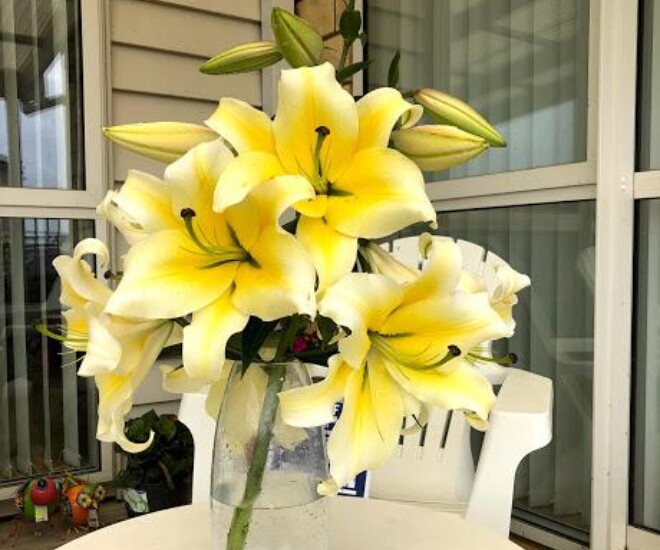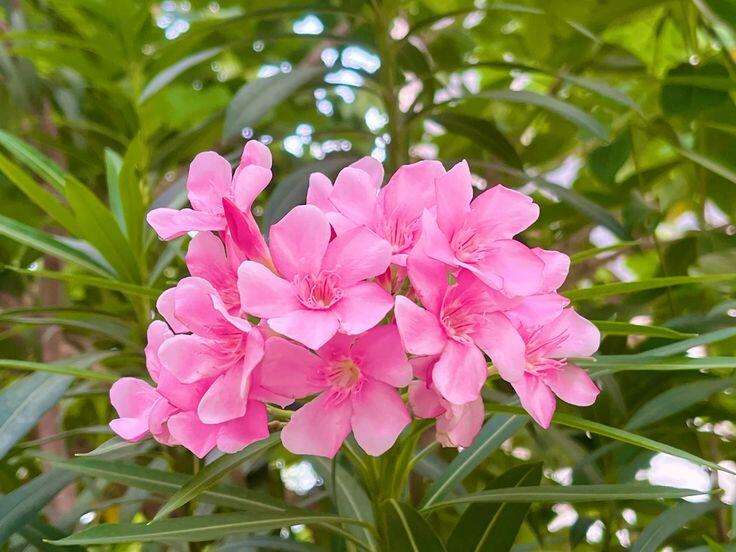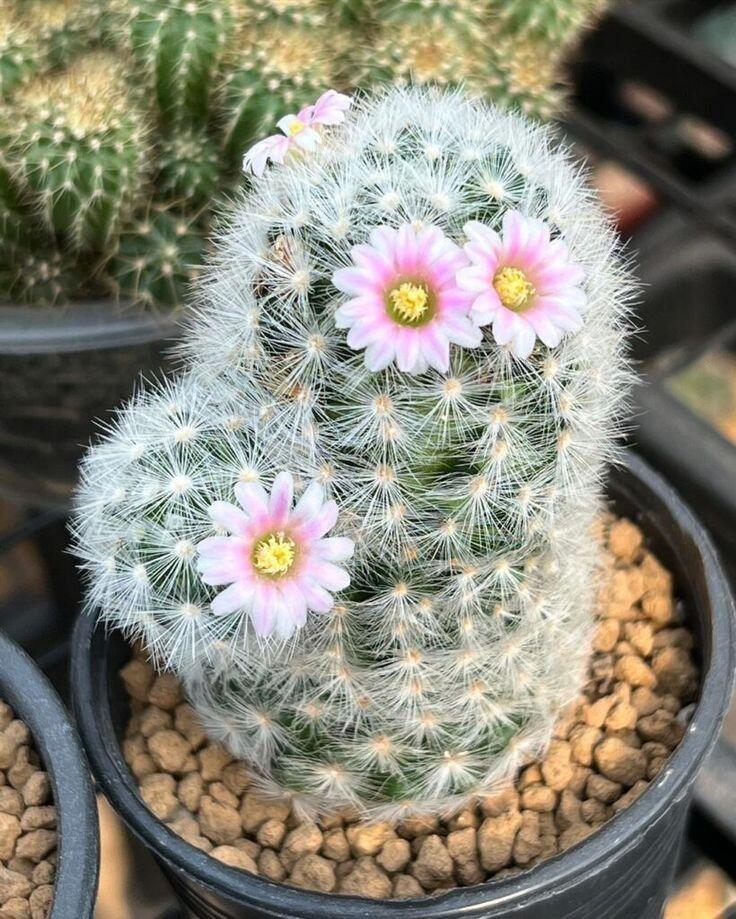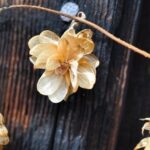Some flowers, no matter how vibrant and alluring, can pose potential health and environmental hazards. Intelligent individuals consider not only the aesthetic appeal of flowers but also their impact on living spaces and family health.
Listed below are three types of flowers that, despite their beauty, may become “ugly” when grown indoors.
Lily

The lily, with its magnificent beauty and captivating fragrance, has become a beloved symbol during festive occasions and full moon days in Vietnam. Particularly, the white lily, also known as the Madonna lily, represents the purity and virtue of Mother Mary, as well as the innate beauty of a woman. However, this preference should be thoughtfully considered, especially when placing lilies in living spaces.
Although lilies can remain fresh for several days, even up to ten days, displaying them in confined spaces can create a suffocating atmosphere, especially at night. The potent fragrance of lilies can make the air stuffy, leading to headaches or discomfort for household members. Many families have resorted to removing the flower arrangements outdoors in the evenings to escape the stifling scent.
Additionally, lilies may trigger allergies for individuals with respiratory conditions such as bronchitis, chronic lung disease, or allergic rhinitis. Therefore, discerning consumers should thoughtfully deliberate before deciding to display this flower in their living spaces, ensuring an environment that is not only aesthetically pleasing but also safe for their well-being.
Peach Blossom

Growing peach blossom indoors can offer significant aesthetic benefits, but it also comes with potential risks that require careful consideration. With its vibrant blooms and eye-catching colors, the peach blossom not only adds life to living spaces but also creates a sense of freshness and closeness to nature. This plant is drought-tolerant and low-maintenance, making it ideal for busy individuals.
However, it is crucial to note that the peach blossom is a poisonous plant. All parts of the plant contain toxic compounds, which can lead to poisoning if ingested. This makes it hazardous for young children and pets who may unintentionally come into contact with or consume any part of the plant. Furthermore, while the fragrance of the peach blossom is generally pleasant, it can be irritating or allergenic to some individuals.
Cactus
Growing cacti indoors, especially in private spaces such as bedrooms or bathrooms, is often discouraged from a feng shui perspective. One of the primary reasons is the belief that the sharp spines of cacti represent negative energy. Many individuals hold the notion that the presence of cacti can disrupt the peaceful atmosphere in living spaces, inducing a sense of tension and discomfort. This is particularly important in bedrooms, where relaxation and tranquility are paramount for restful sleep.
Moreover, the sharp spines of cacti can not only inflict injuries on children and pets but may also have adverse effects on the well-being of family members. Some believe that keeping cacti indoors can lead to an accumulation of negative energy, subsequently influencing the mood and mental health of the household members.

Therefore, the selection of indoor plants should not be based solely on their visual appeal but also on their potential impact on the living environment. To create a harmonious and positive living space, it is advisable to prioritize plants that emanate positive energy and foster a sense of peace for the family.
The Ancient’s Warning: Keep These 5 Items Out of Your Home or Face Disaster and Debt.
The ancient wisdom of keeping your home safe and sound is a timeless treasure. Passed down through generations, this advice warns against the presence of five particular objects within your living space. Imagine a home free from potential hazards, a sanctuary guarded against unseen dangers. Uncover the secrets of creating a haven of peace and security by heeding the wise words of your ancestors.
Coconut Water: Super Healthy Beverage or Harmful Toxin? Unveiling the Truth About Coconut Water’s Dark Side.
For those who are looking for a refreshing and healthy drink, coconut water is often a popular choice. However, it’s important to know that it may not be suitable for everyone. In this article, we explore the cases where coconut water should be avoided and provide insightful alternatives for a healthy and balanced lifestyle.



































